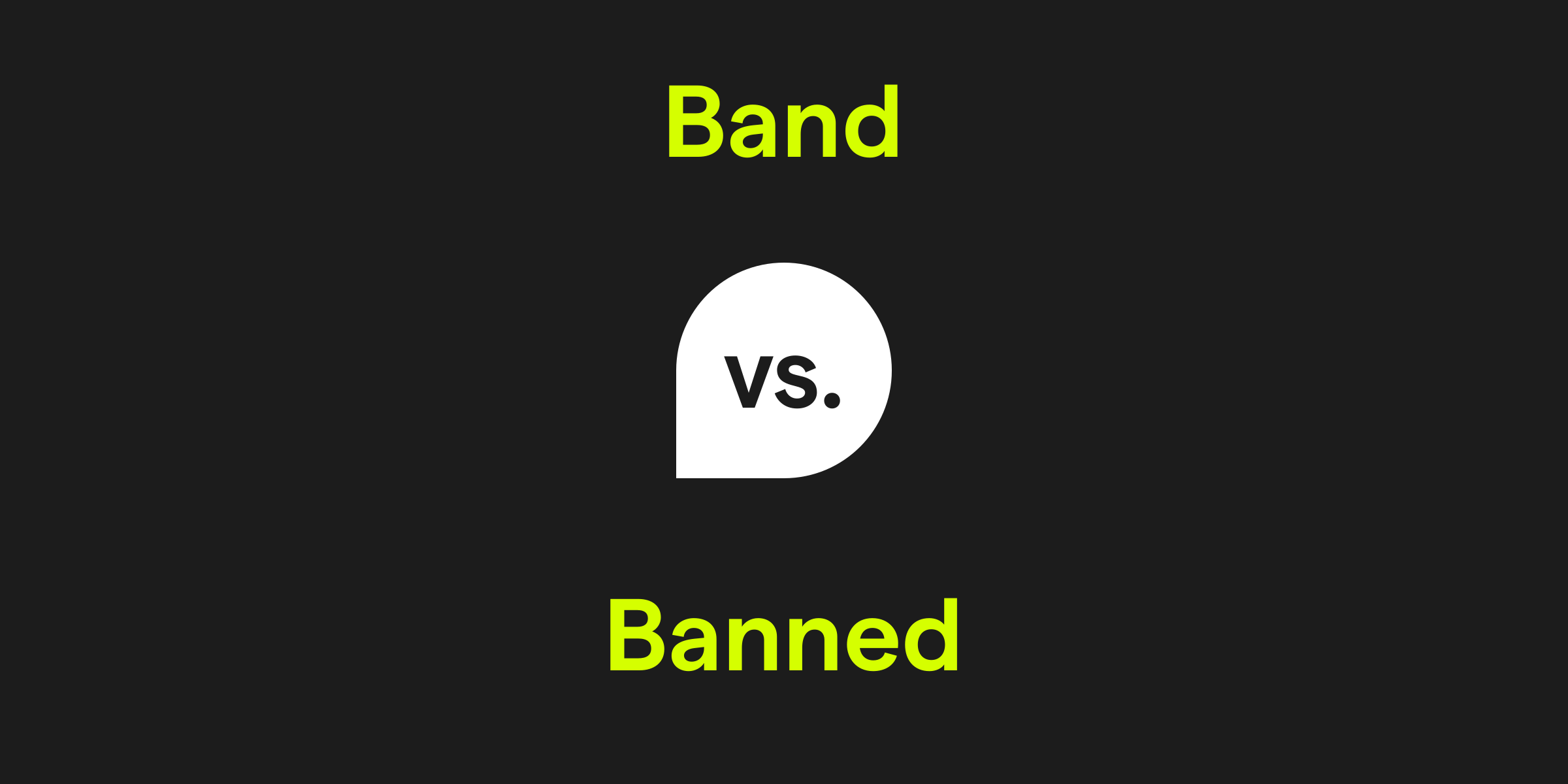Band vs. Banned: What's the Difference?
The words band and banned are classic examples of homophones that can be easily confused due to their similar pronunciation. Band, typically used as a noun, refers to a group of individuals who have come together for a common purpose, often musical. On the other hand, banned is the past tense form of the verb 'ban', meaning to forbid, block or prohibit something officially. A clear understanding of context will illuminate which word is appropriate for a given situation.

How do you use the word band in a sentence?
The word band is most commonly used to describe a group of musicians playing together. Additionally, it can denote a group of people united by a common cause or interest, or simply refer to a thin strip that holds or fastens something. Use band when conveying the idea of solidarity or union within a group, be it for music or another collective effort.
Examples of band in a sentence
- The jazz band performed a rousing set at the cafe last night.
- She wore a gold band on her ring finger, signifying her engagement.
- A band of activists gathered to protest the new city ordinance.
How do you use the word banned in a sentence?
The term banned acts as an adjective that describes something that has been prohibited or as the past tense of 'ban', referring to the act of official prohibition. You might use banned to discuss books removed from a library, substances not allowed in competition, or an action that has been stopped by law or policy.
Examples of banned in a sentence
- The novel was banned from the school curriculum for its controversial content.
- Performance-enhancing drugs are banned in professional sports competitions.
- The company was banned from operating in the country following the scandal.
Band and banned definition, parts of speech, and pronunciation
Band definition:
A band is a noun that defines a group of musicians who play music together. It can also refer to a group of people who unite for a common goal or cause, or a strip used to bind, tie, or fasten something.
Band parts of speech:
Band pronunciation:
Band is pronounced as /bænd/, rhyming with 'hand' and 'land'.
Banned definition:
Banned is the past tense of the verb 'ban', which means to formally forbid something. As an adjective, it characterizes something that has been subject to a ban.
Banned parts of speech:
Banned pronunciation:
Banned is pronounced as /bænd/, which is phonetically identical to 'band' despite their different meanings.
A band is a noun that defines a group of musicians who play music together. It can also refer to a group of people who unite for a common goal or cause, or a strip used to bind, tie, or fasten something.
Band parts of speech:
- As a noun: The rock band's new album topped the charts this week.
- As a verb (less common): Please band these folders together with an elastic band.
Band pronunciation:
Band is pronounced as /bænd/, rhyming with 'hand' and 'land'.
Banned definition:
Banned is the past tense of the verb 'ban', which means to formally forbid something. As an adjective, it characterizes something that has been subject to a ban.
Banned parts of speech:
- As a verb (past tense): The city council banned the use of plastic bags in grocery stores.
- As an adjective: Banned substances are not tolerated in the competition.
Banned pronunciation:
Banned is pronounced as /bænd/, which is phonetically identical to 'band' despite their different meanings.
Band vs. Banned in a nutshell
Despite their identical pronunciation, band and banned carry distinct meanings and uses. Band primarily serves as a noun denoting a group, especially of musicians, or a strip for binding. Banned acts as both an adjective and a past-tense verb signifying prohibition or restraint. Recognizing the difference between band, a collective term, and banned, an act of forbidding, hinges on the context of their usage.
Get AI Writing Assistance Wherever You Type
Make sure your vocabulary is on point and every punctuation mark is in the right place, no matter where you’re working. Grammarly works across more than 1 million websites and apps so you can improve your writing without copying, pasting, or breaking focus.

More Commonly Confused Words
Interest piqued? Pore (not pour) over other commonly confused words to help your writing reach peak (not peek) performance.